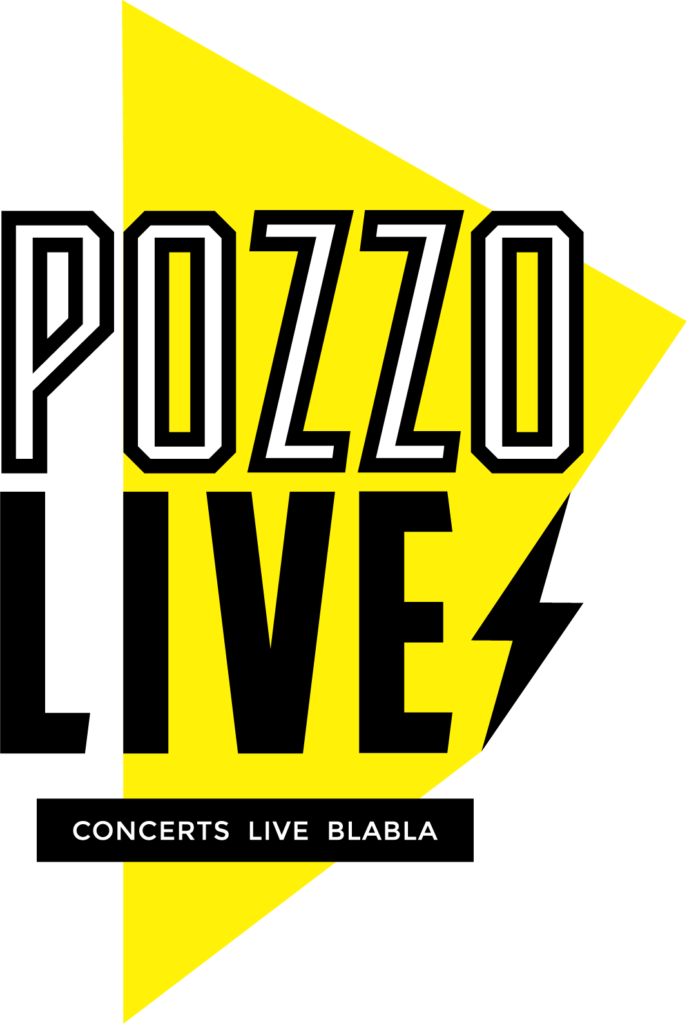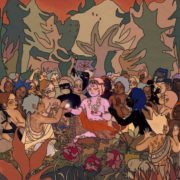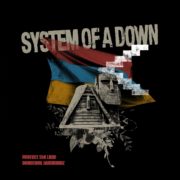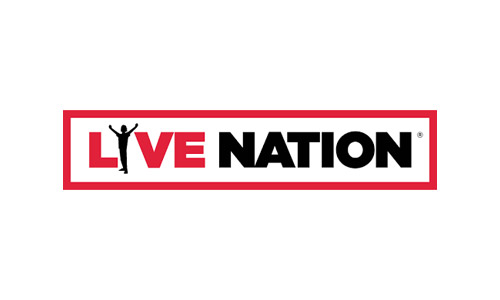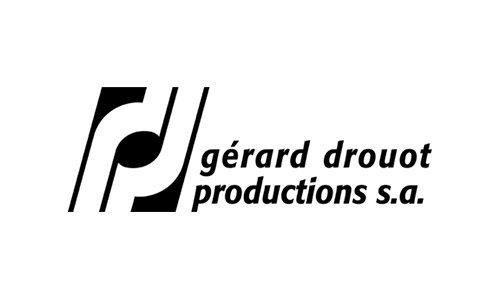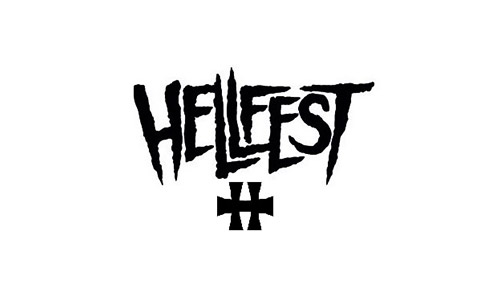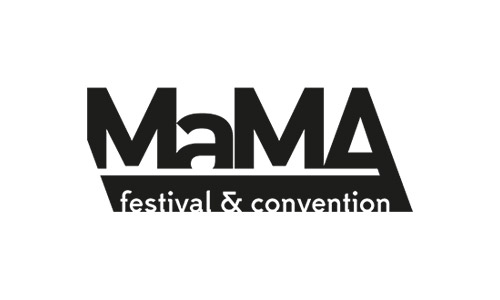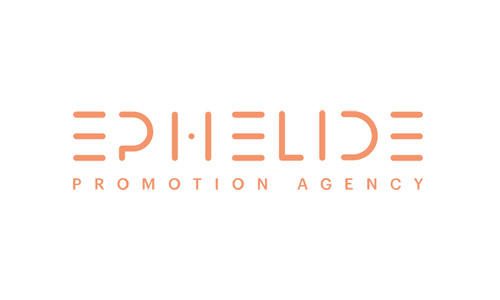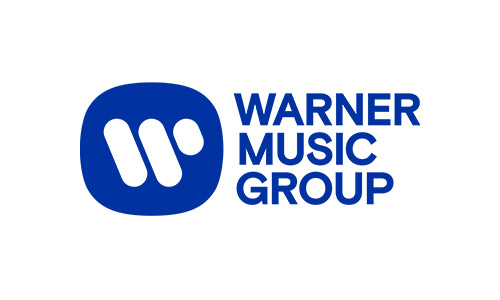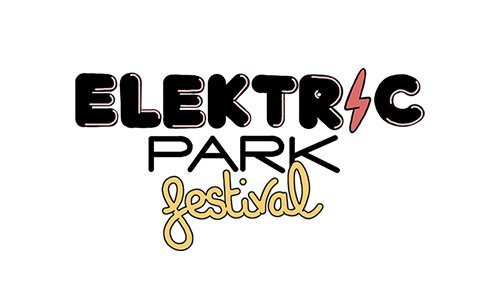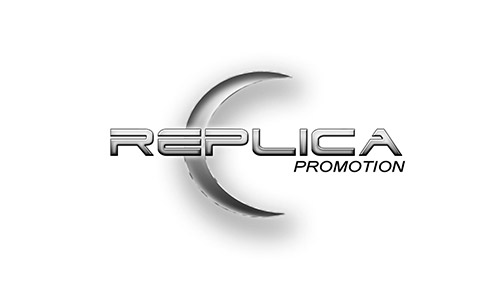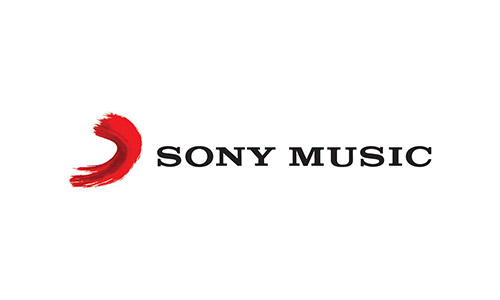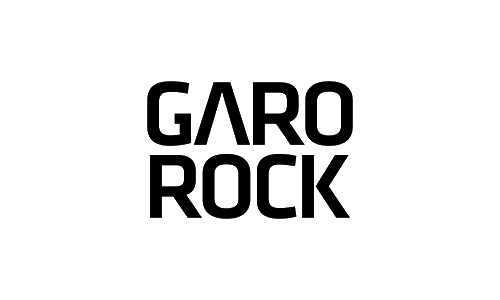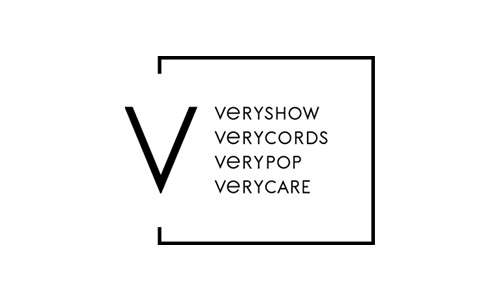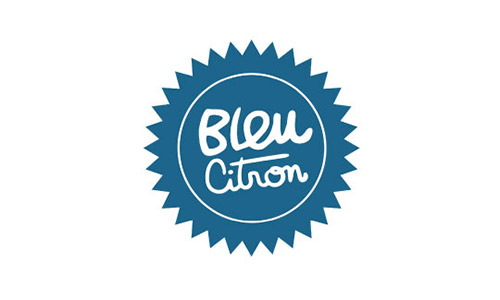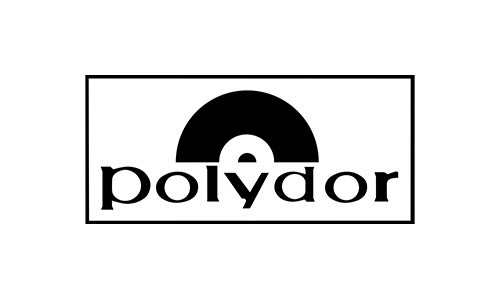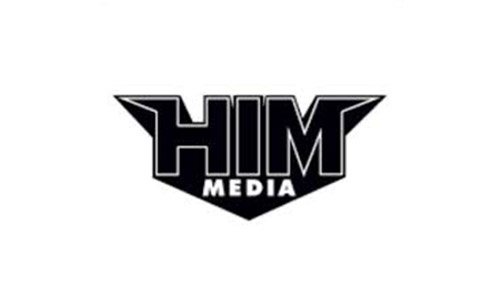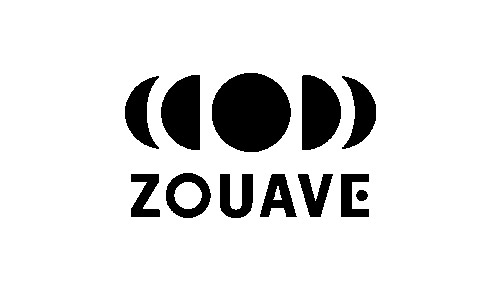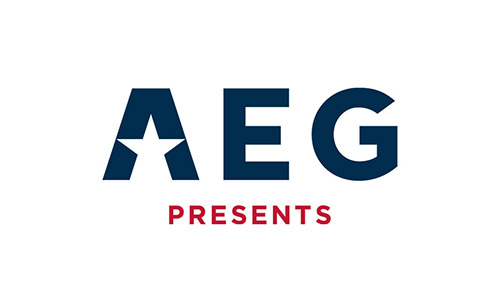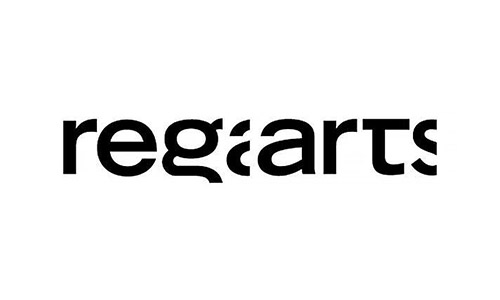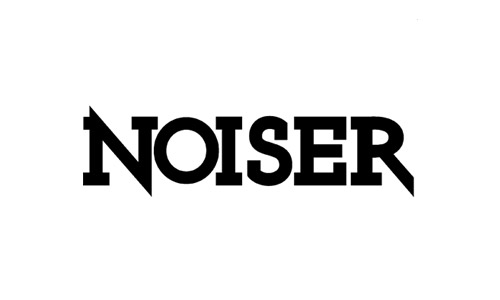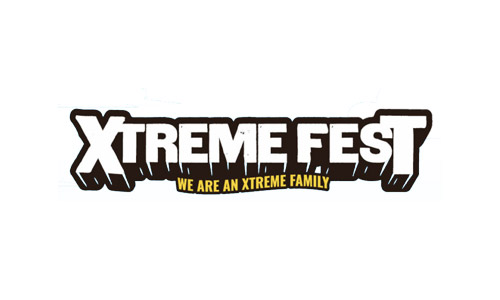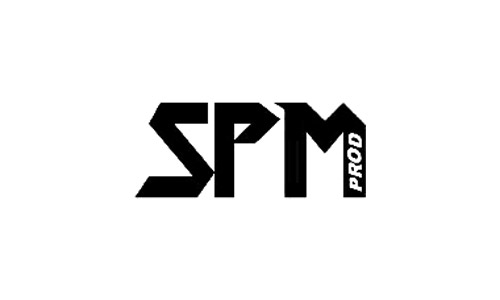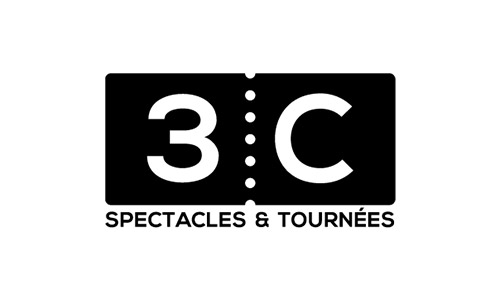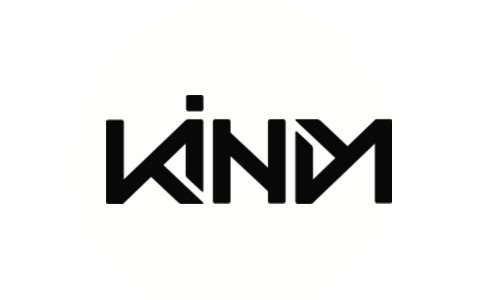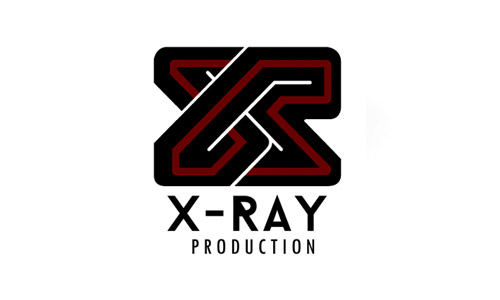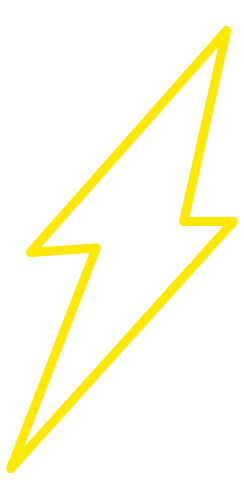Smith & Myers, soit l’addition de Brent Smith et Zach Myers de Shinedown, ont récemment annoncé leur premier (et double) album ‘Smith & Myers Volume 1 & Volume 2’ . Il s’agit de leur première sortie depuis les EPs Acoustic Session Part 1 & 2 en 2014.
Selon Brent Smith, ‘nous avons donné beaucoup de temps et d’énergie pour nous assurer que ce projet soit à 100% authentique. Si Smith & Myers existe en premier lieu, c’est grâce aux fans. Le projet né de multiples demandes au fil des années a désormais son identité propre. Ne vous y trompez pas, le point central du projet, ce sont les morceaux, leur histoire, leur message’.
Brent & Zach nous ont accordé une interview pour parler de ce projet.
Merci à Warner France, Audrey pour la traduction & Charles pour l’interview.
For English version, please see below the french one.
—————————————————————-
Est-ce que tout va bien pour vous, malgré la situation de quarantaine et le contexte actuel ?
Oui, oui, tout va bien.
Parlons de votre nouvel album qui est séparé en deux volumes. Quand avez-vous commencé la création de cet album ?
Zac : Je suis allé à Los Angeles le 20 février, j’ai retrouvé Brent qui était déjà là-bas. On est allé à Malibu et on a commencé à bosser sur l’album avec Dave Bassett avec qui on collabore depuis longtemps. On l’appelle un peu le cinquième membre de Shinedown et je pense qu’on pourrait aussi dire qu’il est le troisième membre de Smith & Myers. Dave est un mec génial, c’est facile de travailler avec lui, on forme une bonne équipe. Donc on a commencé à travailler le 20 février et on a fini la première partie autour du 10 mars. Ensuite, la pandémie est arrivée et on a terminé les trois dernières chansons tous séparés les uns des autres.
On sait que le premier single, Not Mad Enough, est une sorte de réponse à la mort de George Floyd, ce qui signifie que c’est un morceau récent.
Brent : La vérité c’est que, comme Zac disait, on avait terminé 17 de nos 20 chansons. C’est la première fois que l’on faisait dix chansons inédites et dix reprises. Evidemment, Not Mad Enough était l’une des dernières à être écrite. On a écrit cette chanson le soir où j’ai découvert ce qui était arrivé à George Floyd. Je regardais les infos, en même temps que tout le monde aux Etats Unis, et j’étais complète atterré de ce qui est arrivé à cet homme. Comme Zac l’a dit à plusieurs reprises, au fond, Not Mad Enough traite de ce qui est bien et de ce qui est mal. En vérité, Zac et moi, on préfèrerait n’avoir jamais écrit cette chanson, parce qu’on préfèrerait que George Floyd soit toujours en vie, qu’il soit avec sa famille, avec sa fille, mais ce n’est malheureusement pas le cas. Et je pense qu’on ne peut pas ignorer le contexte d’actualité de cette chanson, et le message que l’on veut faire passer avec Not Mad Enough. Je ne sais pas si vous êtes comme nous, mais Zac et moi, on a beaucoup de mal à travailler avec des gens quand ils nous crient dessus. Certains pensent que crier et être violent est une façon de faire passer un message. La seule façon de vraiment changer les choses, d’aller de l’avant dans la société, et de considérer les autres comme des personnes, c’est d’avoir des conversations constructives, qui créent de vraies actions pour aller de l’avant, pour avoir conscience de notre futur et pour le sauver. Pour nous, Not Mad Enough était important à ce moment-là. Les paroles nous sont venues très rapidement, et la chanson a été écrite très vite. Je l’ai présentée à Zac et Dave sans savoir si on devrait vraiment la sortir, je voulais leur avis. Et ils m’ont tous les deux répondu « On doit sortir ce morceau, parce qu’il est important ». Cette chanson parle du fait que pour créer un vrai changement dans la vie, avec les gens, pour que nous soyons tous égaux, pour sauver non seulement l’humanité mais la façon dont on se traite les uns les autres, il est important de trouver des compromis et de se parler. En dehors de ça, le seul moyen, c’est de faire preuve de respect, et de créer des conversations qui mèneront à de réelles actions. C’est la seule façon de sauver notre futur.
Zac, quand vous avez lancé l’album, vous avez expliqué qu’il s’agissait d’une des périodes les plus créatives de votre carrière de musicien et de compositeur. Pensez-vous que cela est dû à la pandémie, parce que vous avez eu plus de temps pour réfléchir et composer cet album ? Comment est-ce que cela a affecté votre créativité ?
Zac : On a eu seulement quelques mois entre la tournée en Europe avec AlterBridge et le début de cet album. Ce n’est pas comme si on avait eu énormément de répit. On est rentré d’Europe, on a passé les vacances chez nous et en février on a commencé l’album. Il y a quelque chose de très inspirant à l’endroit où vit Dave Bassett, le producteur de cet album. Il vit en haut d’une montagne à Malibu et c’est très inspirant d’être là-bas. Je crois que cela a beaucoup joué. A chaque fois qu’on fait quelque chose de nouveau, c’est très excitant. A chaque fois que l’on fait un nouvel album avec Shinedown, on voit ça comme une nouvelle page blanche, on part de zéro et je trouve ça très excitant. Je trouve que Brent, Dave et moi, on fonctionne très bien ensemble, on travaille vite. Généralement, quand on compose des morceaux, c’est très facile de se mettre en doute, de remettre en question chaque rime, chaque mot ; et ça ne nous est pas vraiment arrivé pour cet album. On a suivi le rythme de la chanson, qui nous a emmenés tout seul vers la fin du morceau. C’est génial d’être dans une pièce et de composer dans une atmosphère positive où on ne ressent aucune pression. Et quand on a cette possibilité, je crois qu’on créé notre meilleur travail. Je pense que c’est de là qu’est venu tout ce côté créatif.
Pouvez-vous nous en dire plus sur la chanson Panic ? Il semblerait qu’il s’agisse d’un miroir de la période actuelle ?
Zac : On découvrait peu à peu la pandémie à laquelle on n’avait pas prêté attention. La pandémie venait de commencer, on commençait tout juste d’entendre le mot « coronavirus » à l’échelle mondiale. Au début, je suppose que comme 50% des gens, on se disait « C’est n’importe quoi ». On se disait « C’est impossible, les gens ne vont jamais se mettre en quarantaine et s’enfermer pendant deux semaines – ou quelle que soit la durée à l’époque ». Ce n’est pas qu’on ne prenait pas les choses au sérieux, mais on était réellement sceptiques sur ce qu’il se passait, surtout à cause des médias et de tout ce qui passait aux infos. Quand on a décidé d’écrire cette chanson, elle ne parlait pas du coronavirus, mais plutôt de la façon qu’ont les réseaux sociaux de faire paraitre les choses bien plus grosses qu’elles ne le sont réellement. Les gens exacerbent tout aux infos, dans les médias, et sur les réseaux sociaux dès qu’on leur raconte quelque chose. Brent a sauté d’une falaise de trois mètres, mais une fois que 80 personnes ont raconté l’histoire, Brent a sauté d’une falaise de trente mètres. Une fois que ça fait le tour, les gens grossissent les faits et exagèrent. Donc c’était marrant de souligner ça, et la façon dont les américains en font tout un plat. Les paroles sont assez marrantes : “I’m in a room with the bride and the groom / And the spiders are twenty feet tall”. Et pareil avec “We’re all gonna die”. C’est un peu une sorte de jeu de mots. On ne voulait pas en faire quelque chose de trop sérieux et Brent a eu l’idée de cette mélodie et de cette rime super cool qui allait bien avec le riff. C’est vraiment une de mes chansons préférées de l’album.
Brent : L’autre facette de ça, c’est le jour où on a réalisé le sérieux que représentait le Covid19. En Amérique, il y a un évènement qui est énorme dans l’industrie de la musique, c’est le South by Southwest qui se tient à Austin, au Texas. C’est un énorme festival de musique de deux semaines et il a été annulé pour la première fois depuis 65 ans, quelque chose comme ça. On s’est dit : « Wow, il y a vraiment quelque chose ». A l’époque, notre réaction était de faire quelque chose d’un peu ironique. C’est un peu étrange maintenant de voir ce qu’on a écrit et comment les choses ont tourné. Pour être honnête, j’aurais préféré avoir à faire à une armée de frelons meurtriers qu’à ce virus. Mais ça n’a pas été le cas, et on doit faire face à cette pandémie.
Comment vous créez votre musique, par rapport à Shinedown ? Est-ce que vous travaillez ensemble en tournée, ou pendant vos pauses/vacances ? Ou est-ce que vous travaillez chacun de votre côté et que vous mixez ensuite toutes vos idées ?
Zac : Généralement, avec Shinedown, ça commence par Eric et Brent qui écrivent un morceau. Et ensuite, Eric, Brent et moi, ou alors Brent, Dave et moi, on se retrouve ensemble, et tout commence comme ça. Avec Shinedown, il y a vraiment un procédé d’écriture. On sait ce qu’on va faire, on produit des démos comme s’il s’agissait d’un album ; on ne se contente pas d’enregistrer des trucs sur un téléphone et de se dire « Ok, on va chanter ça avec une guitare acoustique, ça sera la démo, et on l’arrangera pour l’album ». Pour l’instant, je crois qu’on a 7-8 chansons écrites pour le prochain album de Shinedown. Lesquelles seront sur l’album, lesquelles n’y seront pas ? Ça, on ne sait pas encore. Il y a beaucoup de choses qu’on aime. On n’est pas le genre de groupe qui met un peu de basse, un peu de batterie, qui rajoute de la guitare et du chant et qui écrit ensuite une chanson, on n’a jamais fonctionné comme ça ».
Brent : Avec Shinedown, on passe un peu plus les choses au microscope, si vous voulez. Ce n’est pas une règle écrite, mais avec Shinedown, on a une règle sous-entendue qui est de ne pas recopier ce qu’on a déjà fait. Ne pas écrire deux fois le même album, ne pas réécrire la même chanson encore et encore. Nos fans savent que tous nos albums sont différents les uns des autres et qu’on est connus pour expérimenter différentes sonorités. On ne rentre pas dans une seule catégorie, parce qu’on est influencés par tellement de styles de musique différents. On ne commence jamais un album de Shinedown en disant : « Qu’est ce qu’on a fait la dernière fois ? Refaisons la même chose ! ». On se concentre vraiment pour se remettre en question et se dire : « Ok, qu’est-ce qu’on a déjà fait ? Qu’est-ce qu’on n’a pas encore fait ? De quoi on a déjà parlé ? De quoi est-ce qu’on n’a pas encore parlé ? Vers quoi veut-on se diriger maintenant ? ». Il y a beaucoup plus d’analyse dans la machine qu’est Shinedown.
Je suis fan de Rockin’ In The Free World. Pourquoi avoir choisi une version relaxante et apaisante de la chanson, contrairement à Pearl Jam par exemple ?
Brent : On a fait ça avec plusieurs reprises. Quand on choisit une chanson qu’on veut reprendre, on n’essaie pas de faire une copie conforme de l’originale. On essaie de regarder ça sous un angle différent : « Est si on avait écrit cette chanson ? Qu’est-ce qu’on aurait fait ? ». Ce que je veux dire par là, c’est que Rockin’ In The Free World, par exemple, est une chanson un peu punk rock. Et le message de cette chanson pourrait passer inaperçu si on ne se concentrait pas sur les paroles à cause de la guitare, de la batterie, et de tout le reste. Mais en vérité, ce que Neil Young dit dans cette chanson est très important, c’est très profond, et aussi assez déchirant d’une certaine façon. Ces chansons qu’on choisit de réimaginer, on les a prises et on s’est dit « Ne copiez pas ce qui a déjà été fait. Prenez ces chansons, et présentez les d’une façon différente ». Donc beaucoup de morceaux ont à voir avec les paroles, avec l’histoire de la chanson, et c’est peut-être quelque chose qui n’était pas vraiment mis en avant à travers le point de vue des compositeurs à l’origine. Selon moi, le deuxième couplet de Rockin’ In The Free World est probablement l’un des plus honnêtes extraits de poésie du rock moderne que j’ai pu entendre. Si vous ne connaissez pas les paroles de ce deuxième couplet, Neil Young dit : “I see a woman in the night / With a baby in her hand / There’s an old street light near a garbage can / Now she put the kid away, and she’s gone to get a hit. She hates her life, and what she’s done to it / There’s one more kid that’ll never go to school
Never get to fall in love, never get to be cool”. Et c’est très puissant, et très profond. Ça mérite d’être entendu.
Donc à priori, vous décidez tous les deux des reprises qui seront sur l’album. Mais pourquoi est-ce que c’est important pour vous de faire renaître certaines vieilles chansons, ou certains morceaux pas très connus ?
Brent : Pour les morceaux plus récents, comme Billie Eilish et Post Malone, je suis allé voir Zac et j’ai dit : « Je veux faire ces chansons », et il a été très ouvert à ce sujet.
Zac : Je crois que la chanson la moins connue est probablement Valerie. Mais on voulait un peu faire un mix, un peu comme notre premier album en 2014. On voulait choisir des chansons pour nous, qui nous plaisaient, et dont on était surs de pouvoir créer une version différente. On voulait appréhender ces reprises en se disant : « Et si on avait écrit ces chansons ? Et si on les avait écrites en acoustique ? ». Je pense que c’est un peu l’approche qu’on a eue. On n’a pas de batteur ou de bassiste, donc c’est comme ça qu’on voulait procéder. Au début je n’étais pas trop pour la reprise de Billie Eilish, je n’avais jamais vraiment écouté la chanson, mais Brent voulait la faire. Je lui ai fait confiance, et le résultat est génial. C’est la même chose quand on prend une chanson comme Valerie, j’ai lancé l’idée comme ça, je voulais vraiment faire cette chanson, et le résultat est super aussi. Je crois que pour choisir les covers, on a juste pris des morceaux qui plairaient au public.
Lequel d’entre vous est fan de Patrick Swayze ? Par rapport à votre reprise d’Unchained Melody.
Zac : C’était une idée de Brent ! C’était l’une des chansons préférées du père de Brent, et il voulait vraiment la faire pour son père. Il y a tellement de versions géniales de cette chanson qu’en la reprenant, il faut vraiment tenir quelque chose de bien. Parce qu’il y a The Righteous Brothers, il y a Elvis…Ce sont parmi les meilleures versions de cette chanson qui existent. C’est la seule chanson qu’on a enregistré en live. On s’est mis dans la même pièce pour toute la chanson. C’est quelque chose que Brent voulait faire. J’étais assez hésitant pour cette chanson. Mais Brent a dit « On va gérer ce morceau ! », et au final, c’est l’une des meilleures performances vocales de tout l’album, et on a tout fait en live ensemble.
Sanjay réalise la plupart de vos vidéos avec Shinedown et avec Smith & Myers. Alors, quelle sera la prochaine ?
Brent : On en a aucune idée. Le process entier de Smith & Myers a été filmé par Sanjay. En fait, il avait une caméra qui tournait constamment, à tout moment. Donc on va vraiment montrer tout le procédé à nos fans, pas seulement pour les reprises, mais également comment on a écrit les nouvelles chansons, parce que Sanjay filmait toute la journée, non-stop. Il édite et monte différents trucs pour vraiment laisser rentrer les gens dans ce que représente une session de composition avec Zac et moi. Mais ce projet était important pour nous, comme la première fois qu’on l’a fait en 2014. Il y avait dix chansons, on a fait ça en trois jours, et tout a été monté très rapidement par notre ami vidéaste de longue date, Darren Doane. Ensuite, Sanjay s’est joint à nous avec Shinedown et nous a apporté son expertise avec le style de vidéos qu’il fait. On lui a demandé de faire ça avec nous parce qu’on trouvait ça important que tout soit documenté. On a beaucoup de contenu pour le public pour le restant de l’année, et pour 2021 aussi. On a beaucoup de choses derrière le rideau qu’on va révéler aux gens !
Votre dernier concert avec Shinedown en France affichait complet au Cabaret Sauvage. L’Olympia avec AlterBridge était complet également. Je suppose que Smith & Myers sera donc accueilli tout aussi chaleureusement à Paris, en France de manière générale. Est-ce que vous avez des projets malgré le contexte actuel ?
Brent : Oui, pour l’instant on fait des concerts en extérieur aux Etats Unis. Zac et moi on a vraiment conscience que l’industrie de la musique a changé pour le moment, tout est en suspens, et on le comprend parfaitement. Ça ne sera pas comme ça pour toujours, mais pour répondre à votre question au niveau international, oui, c’est sur qu’on emmènera Smith & Myers de l’autre côté de l’Atlantique en Europe et surtout en France dès qu’on le pourra !
Dernière question, mais pas des moindre. Nous avons eu l’opportunité d’interviewer Lacey Sturm il y a quelques mois et elle nous avait conseillé de vous interviewer. Alors je vais vous poser la même question : quel groupe ou artiste pensez-vous que Pozzo Live devrait interviewer ?
Zac : Je dirais le groupe Badflower.
Brent : Je suis d’accord avec Zac sur ce point. Josh est vraiment super. Je crois qu’une fois que ce groupe sera plus connu en Europe, il marchera super bien !
ENGLISH version
Is everything fine on your side guys? Despite the lockdown and the current context?
Yes, yeah.
About your new album which is in two volumes. When did you start the making of this album?
Zac: I flew to Los Angeles on February 20th, Brent was already there, and we went out to Malibu and we started working on the record with Dave Bassett who’s our long-time collaborator, we kinda call him the 5th member of Shinedown and I guess we could call him the 3rd member of Smith & Myers. Dave is an awesome guy, he’s very easy to work with, he works with us very well. So we started around Feb 20th and we finished the 1st part around March 10th, and then obviously the pandemic happened, so we ended up finishing the last three songs all separated from each other.
We know the first single, Not Mad Enough, is some kind of an answer to George Floyd’s death, which means it’s a pretty recent song.
Brent: The reality of it is, like Zach was saying, we had 17 of the 20 songs done. This is the first time that we’ve done 10 original songs with 10 covers, and ultimately, Not Mad Enough was one of the last songs to be written. But ultimately, we wrote that song the night I found out what had happened to George Floyd. And as I was watching it in real time on the news along with everyone else in the United States, and was just completely floored by what happened to this man. As Zach had said many times, at its core, Not Mad Enough is about right and wrong. The reality of it is, both me and Zach, we really wish the song hadn’t been written in the first place because we would much rather George Floyd still be alive so that he could be with his family, with his daughter, but the reality is that that’s not the case. And I think that you can’t bury your head in the sand in regards to the social commentary in the song, but also the exposure of what we’re trying to convey with Not Mad Enough Is the fact that that I don’t know if you’re like me, but me and Zach don’t work very well with people when they scream at us. They feel like yelling and being violent is the way to get their message out there. The only real way that you’re going to figure out how to have real change and how to move forward in society and how to look at each other as individuals and look at the person more than anything is that you’re gonna have to have conversations that are constructive, that create real action in order to move forward, in order to be aware of the future that you want for yourself, but also how to save your future. For us, Not Mad Enough was something that for the time and for what has transpired, really the lyrics came very quickly to us, the song was written very quickly. But I presented it to Zach and Dave in a way that I didn’t necessarily know if we needed to release it, I looked to them to help me with this and they said “we must release this, because it’s important”. The song is about understanding that in order to create real change in life and with people and to have everyone be looked at as equals, what we need to do to save not only humanity but how we treat one another, you have to find compromises and you have to talk to one another, but outside of that, that’s the only way – by being respectful to each other, creating those conversations lead to real actions, but that’s the only way you’re gonna save your future.
Okay, yeah, I agree. Basically Zach, unless I’m mistaken, when you launched the album you explained that it was some of the most creative times you ever had as a musician and songwriter. Do you think it’s due a little bit to the current pandemic, since you had more time to think and to compose this album? How did it touch your musical creativity basically?
We only had a couple months really between touring in Europe with AlterBridge and starting this record. So, it wasn’t like we had a tons of time off. We went home from Europe; we did the holidays at home and in February we started making the record. There’s something really inspiring about where Dave Bassett the producer of this album lives. He lives kind of on top of a mountain in Malibu and there’s something really inspiring about being up there. I think that was a big part of it, I think that anytime you’re doing something new, it’s all so exciting. Anytime Shinedown makes a record, we look at it as a brand-new sheet of paper, we’re starting fresh so I think there’s a lot of excitement to that. I think that me, Dave and Brent just work really well together, we work fast. Usually when you’re songwriting, it’s very easy to question yourself, questioning every rhyme, every word, and we didn’t really do that on this record. We kind of went with the flow of the song, and the flow kind of led itself towards the end of the song. It was really nice to be in a room writing where everything was positive and good and it didn’t feel like there was a bunch of pressure. And when you can do that, I think you’re gonna create the best work. I think that’s where the creative side came from.
What about the song Panic? It seems to be a mirror of the current time?
We were finding out about the pandemic that we hadn’t been paying attention to. The pandemic was just starting, we were kind of just starting to hear the word coronavirus on a global scale. At first, I imagine like 50% of the world, we were thinking “This is bullshit”. We were like “There’s no way people are gonna go inside and lockdown for two weeks or whatever it was at the time”. It wasn’t that we weren’t taking it seriously, but we were definitely skeptical about what was happening, especially with the media and everything that was going on in the news. When we decided to write it, it wasn’t even about the coronavirus, it was more about how social media makes people blow things up much larger than they actually are. People kind of exacerbate everything in the news, media, social media once you tell somebody a story. Brent jumped off a 10 foot cliff, but once eighty people tell the story, Brent jumped off a 100 foot cliff. Once it goes around, people kind of exacerbate and make things bigger than they are. So it was kind of fun poking at that, and they way Americans do it too, they blow everything out of proportion. The lyrics are kind of funny. “I’m in a room with the bride and the groom
And the spiders are twenty feet tall”. And the same with “We’re all gonna die”. It’s kind of a play of words. We didn’t feel like making it this serious thing and Brent kinda came up with that melody and that very cool rhyme thing that went along with the guitar riff. It’s one of my favorite songs on the record truly.
The other side of this is this was the day we did see some seriousness in regards to what Covid 19 was, because it was the day that we found out that in America, they have something that’s a very big deal every year in the music industry, it’s called South by Southwest, it happens in Austin, Texas. It’s a huge two-week musical festival and they canceled it for the 1st time in like 65 years. It was like “Wow, something is off”. Our answer at the time was to do something that was a little tongue-in-cheek. It’s a little bit eerie now to see what we wrote and to see that it kind of played itself out. I have to be totally honest with you, I would have preferred to deal with a freaking army or murder hornet than this virus. But that wasn’t the case, we had to deal with the pandemic.
Basically, how do you create your music, versus Shinedown? Do you work together on tour, on break, on holidays? Or are you on your own, each of you, and then you mix all the ideas?
Z: Usually, with Shinedow, it starts with Eric and Brett writing a song. And then me and Eric and Brett or me, Brett and Dave will get together and really it just starts with that. With Shinedown it’s a lot more of a writing process, we know what it’s gonna be, we make demos that sound like records, but we don’t just sit there with a phone and say “Okay, sing this over an acoustic guitar and that’ll be a demo and then we’ll go and really refine it on the record”. Once we go into writing mode, I think we have 7-8 songs written right now for the new Shinedown record, what will make it, what won’t, we don’t know yet. We have a lof of stuff that we like. We’re not a band that just goes in and _ it out, bass, drums, guitar and vocals and then write a song, it’s just never how we worked.
B: Shinedown is a little bit more under the microscope if that makes sense. It’s not a rule per say but it’s kind of an unspoken rule, with Shinedown, which is don’t copy yourself. Don’t write the same record twice, don’t write the same song over and over and over again. One of the things about our fanbase around the globe is that they understand that none of our records sound exactly the same from one another and that we’re known for experimenting with different sounds. We don’t fall into one major category because we’re influenced by so many different kinds of music, so we’re never gonna go into a Shinedown record saying “What did we do last time? Let’s just do something like that!”. We really do focus on questioning: “Okay, what have we done already? What have we not done? What have we spoken about? What have we not spoken about? Where do we wanna go now?”. There’s a lot more microscoping in the machine that is Shinedown.
I’m a fan of Rockin’ In The Free World. Why did you choose to have this kind of relaxed and peaceful side of the song compared to Pearl Jam for instance?
We did this with quite a few of the covers. Zac makes a good point about the cover material that we chose, we’re not trying to make a carbon copy of that song. In some ways, we’re trying to look at it from the dynamic of ‘What is we wrote this song? What would we have done?’. What I mean by that it, take Rockin’ In The Free World for example, that’s kind of a punk rock song, and the statement in that particular song would go by and maybe you wouldn’t focus on the lyric as much because you’ve got the guitars and the drum beat and everything else. But the reality of what Neil Young is saying in that song is very important and very profound and quite heartbreaking in a lof of ways. These songs that we chose to reimagine, we looked at them and said ‘Don’t copy what’s already been done. Take the songs, and present them in a different way’. So a lot of these songs had to do with the lyrics, with the story of the song and maybe that wasn’t put to the forefront from the original viewpoint of the writer of the songs. But for me, the second verse in Rockin’ In The Free World is probably one of the most honest pieces of poetry in modern rock and roll of anything I’ve ever heard. If you don’t know the lyric of this second verse, Neil Young says: “I see a woman in the night / With a baby in her hand / There’s an old street light near a garbage can / Now she put the kid away, and she’s gone to get a hit. She hates her life, and what she’s done to it / There’s one more kid that’ll never go to school
Never get to fall in love, never get to be cool”. And that is powerful and that is profound. That deserves to be heard.
Basically, you’re both deciding which cover has to be on the album, but why is it important to you to reborn some old or not very well-known songs?
For the newest stuff, like Billie Eilish and Post Malone, I went to Zac and I said “I wanna do these songs” and he was very open minded about it. The lesser known songs, I don’t know.
I think the least known song would probably be Valerie but I think we wanted a mix, kind of like our first album in 2014. We really wanted to pick some stuff for ourselves that we knew we wanted to do, that we knew we could create a different version of that song. We wanted to kind of approach the covers in a way of: “What if we wrote these songs? What if we wrote them acoustically?”. I think that’s kind of how we approached it. We don’t have a drummer or a bass player, so this is how we wanted to do. I wasn’t really into the Billie Eilish song, I never really listened to it before, but Brent wanted to do it and I trusted him and it came out great. Same thing when you look at a song like Valerie, I dropped that at the table, I really wanted to do that song and it came out the same way. I think when it came to doing the covers, we just wanted to pick songs that we thought people would enjoy.
Which one of you is a fan of Patrick Swayze? Because of your cover of Unchained Melody.
That was one of Brent’s ideas! That was one of Brett’s dad’s favorite songs, Brett really wanted to do that for his dad. There are so many great versions of that song that you kinda have to come with something because you’ve got The Righteous Brothers, you’ve got Elvis… 4 of the best versions of that song that could ever exist. That was the only song we recorded live. We got into the same room at the same time for the whole song. It was something that he wanted to do and I was a little hesitant about doing this song. But Brent said “We’re gonna nail that song!”, and that’s part of the best vocal performance of the entire record, and we did the whole thing live.
Sanjay is doing most of your shooting videos with Shinedown and with Smith & Myers, so what is the next one?
We actually have no idea. The entire process with Smith & Myers was filmed by Sanjay. The dynamic is that he had a camera rolling at all times. So we’re really gonna let the fanbase into the process of not only the covers, but how we wrote these original songs too because he kept a camera rolling every day non-stop. He’s editing and putting different things together to really give people a doorway into what it’s like to be in a writing session with me and Zac. But it was important also with this project the first time around we did it back in 2014 we did it in three days, it was 10 songs and we cut them real quick with a long-time videographer friend of ours video director Darren Doane. Then Sanjay kinda came into the fold with Shinedown and started bringing his expertise to the video style that he does. We brought him along for this because it was important that it was documented. We have a lot of content for people for the rest of the year and going on into 2021. We have a lot of things behind the curtain that we’re gonna show people.
Your last concert in France with Shinedown was sold-out in France, it was Le Cabaret Sauvage. The Olympia as well along with Alterbridge. So I think Smith & Myers should be warmly welcomed as well in Paris or in France. Do you have anything planned for us despite the current context?
Yeah, we’re doing drive-in shows right now in the USA. Me and Zac are being very mindful and understanding of how the industry has changed right now, it’s in a holding pattern. It’s not gonna be like that forever but to answer your question about international, we will definitely take Smith & Myers across the pond to Europe and especially France as soon as we possibly can.
Last question, but not the least. We got the opportunity to interview Lacey Sturm a few months ago and she advised us to interview you. So I’m gonna ask you the same question: which band or artist do you think we should interview next?
I’m gonna say the band Badflower.
I agree with Zac on that one. I think that band, once they catch on in Europe, is gonna do really well.
Pour ne rien rater de l’actualité musicale, suivez nos chroniques et nos interviews !
